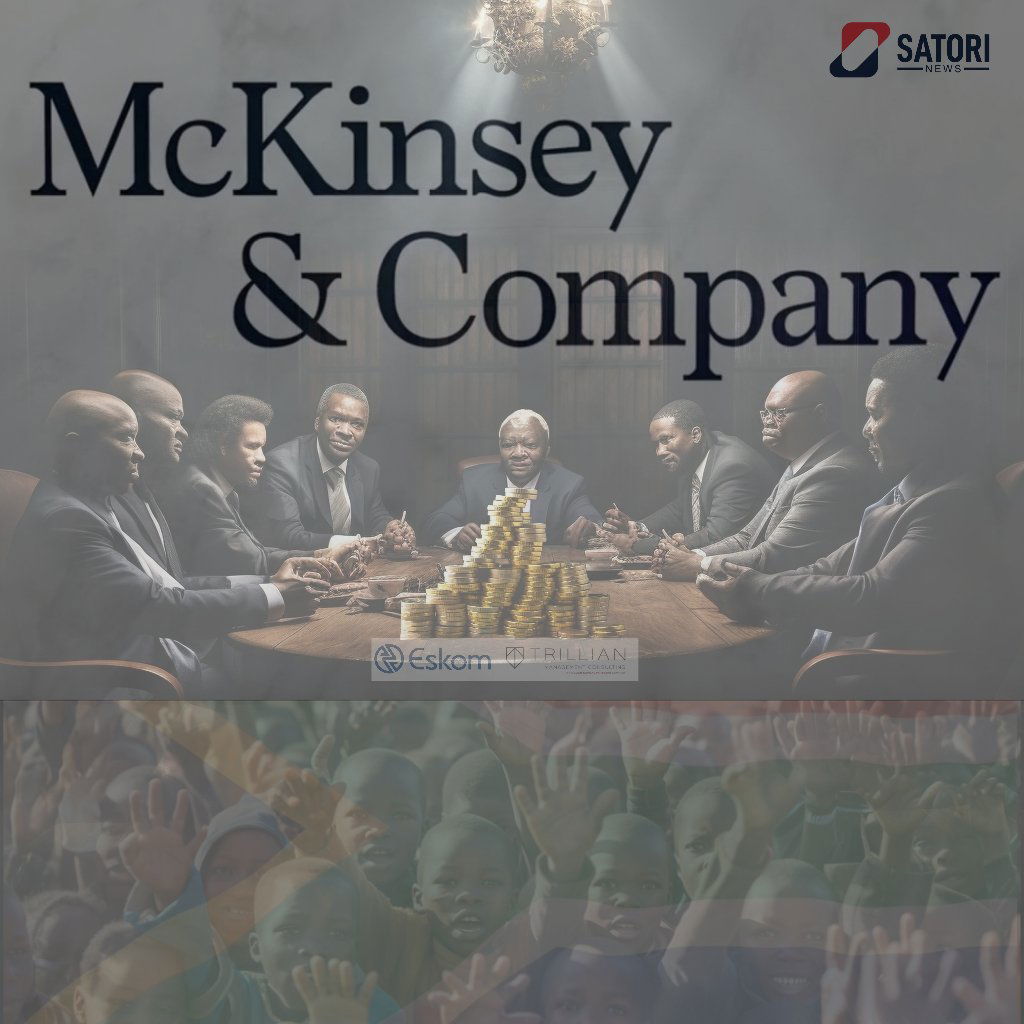Picture: for illustration purposes
McKinsey and Trillian Capital Accused of Siphoning Eskom Funds
Consulting giant, McKinsey, has become embroiled in controversy surrounding the underhanded dealings by Trillian Capital Partners with South Africa’s largest state-owned entity, Eskom. The accusations arose from a report into state capture allegations by advocate Geoff Budlender, suggesting McKinsey was not so much the whistle-blower but an accomplice. Budlender’s report detailed how McKinsey subcontracted 30% of their Eskom work to Trillian, the majority-owned company of Gupta associate Salim Essa, under the guise of 'supplier development', supposed to assist small, black-owned businesses, but seems to have been exploited as a channel for ploy of wink-wink nudge-nudges. The report alleges that McKinsey disregarded their motto of prioritising client interests above their own, by assisting Trillian to siphon off large amounts of money from Eskom. McKinsey has consistently denied any associations with Trillian.
Eskom hired McKinsey in 2015 to improve efficiency and mitigate reckless expenditure, at an approximate cost of R1-billion a year. Ironically, the deal that transpired between McKinsey and Trillian only seemed to amplify Eskom's fiscal pitfalls. Budlender’s report reveals that a minimum of R266-million of Eskom's money was awarded undeservingly to Trillian.
This tale of deceit and betrayal started unfolding in 2015, when Eskom was experiencing a crisis. Amid the chaos and frequent change of CEO's, Eskom negotiated a 'risk-based contract' with McKinsey who agreed to subcontract 30% of the work to Trillian. By early 2016, however, alarm bells were ringing.
Internal memos and communication highlighted the disregard and contempt exhibited by McKinsey’s senior executives towards Trillian. A former Trillian executive, reported in the Budlender inquiry, wrote that Trillian was treated as “a necessary, but unwanted piece of baggage in the awarded contract,” with a perception that they contributed nothing but required their 30% cut. The report also mentioned that McKinsey's attitude towards supplier development was dismissive and seen as a negligible concern provided they got their cut.
The #GuptaLeaks indicate Sahara Systems subsidiary called Cutting Edge Commerce, owned 52% by Sahara Systems, was also involved in extracting monetary benefits from the McKinsey-Eskom project. Documents show Cutting Edge was to receive 80% of money earned from the Procurement work stream at Eskom by Trillian. The expected cut was estimated at R1.3-million a month, subsequently amounting to R20-million per quarter.
E Gateway Consulting, a company registered in Dubai, a known haven for tax evasion and secrecy, was introduced as a partner in 2016. Despite having no public records, Trillian suggests E-Gateway was set up in Dubai by the India-based E-Gateway to cater to energy clients in the Middle East. As much as 77% of all revenue Trillian received from Eskom on the Generation work stream would end up with E Gateway. McKinsey expressed concerns over this setup and requested further clarity on the relationship between Trillian and E Gateway.
McKinsey and Trillian parted ways in February 2016 due to rising reassessments from McKinsey's risk committee. After Trillian was dismissed, McKinsey seemingly lost interest in Eskom, with rumours suggesting Eskom reciprocated the sentiments. Eskom's then CFO, Anoj Singh, even suggested terminating their contract with McKinsey during the first half of 2016. However, despite the termination of the arranged engagement between McKinsey and Trillian, the latter appears to have continued working with Eskom under false pretences, resulting in invoices summing to R419-million over the next 11 months.
While Trillian, Eskom, and public enterprises minister Lynne Brown denied any contracts or payments between Eskom and Trillian, Budlender was able to present evidence contradicting their claims.










